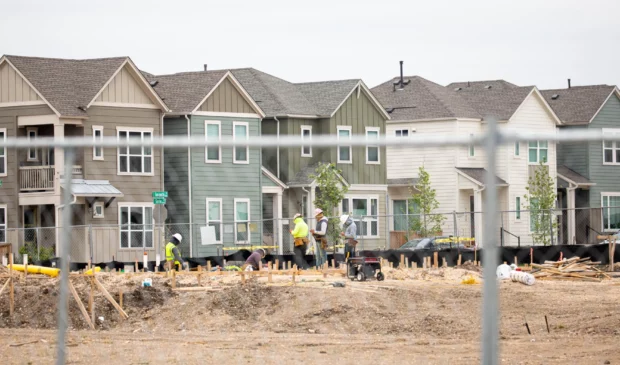New building under construction on your block? Austin could change how you’re notified.
Wednesday, July 5, 2023 by
Luz Moreno-Lozano, KUT East Austin residents flooded a City Council meeting last month for a vote on rezoning the Borden Dairy plant to allow mixed-use development. The 21-acre site will make room for apartments, hotel rooms and a mix of office, restaurant and retail space. Many residents expressed concerns about the impact to traffic and air and water quality, but the city ultimately voted to move forward with the zoning change.
While these neighbors spoke out about the development, that’s not always the case. Residents often are not aware of a project happening in their neighborhoods – even though the city spends hundreds of thousands of dollars trying to inform them. Many notices are overlooked or go to people who live too far away to care.
Austin is looking into changing this process.
A report released last week showed the notification process was expansive – and that can be expensive. Last year, the city spent $330,000 to inform residents about nearby development projects.
Austin notifies residents through mail, newspaper ads and signs posted on a property. These notices go to property owners within 500 feet of a project – about a city block – though state law requires written notice only to neighbors within 200 feet.
Council Member Ryan Alter, who led the call for the report, said there’s a desire and need to increase public engagement, but “there are better ways to do it.”
He said notices often get thrown out or lost, and not everyone sees newspaper ads. That means residents don’t know about opportunities to speak out. He also said people several blocks away from a project are overly notified, and that’s a waste of time and money.
Alter said he hopes the city will find ways to be more efficient and effective. That could mean notifying residents through emails, texts, social media posts or even a centralized website.
“I would like us to spend our resources smarter,” Alter said, “I think there’s an opportunity to do that here.”
The report
Alter ordered the report earlier this year to better understand the notification process and find ways to better inform residents of projects and cut costs.
The report, performed by the city auditor, found Austin’s notification radius is much larger than in other cities.
San Antonio requires notification within a 200-foot radius; in Dallas, it ranges from 200 to 500 feet depending on the type of development. Six other cities that were surveyed – including Seattle and Denver – also had smaller radiuses. According to the report, the increased distance means the city sends 46 times more notifications than state law requires in some cases, increasing the likelihood of missed or ignored notifications.
And while the notification methods were similar, some cities also use websites, text messages and emails to notify residents. Some even use social media postings.
“There are other opportunities where we can better inform and engage the public that I think we’re missing,” Alter said.
Todd Shaw, who chairs the Planning Commission, said communication is key to maintaining public trust.
“The distance is just one factor,” he said. “I think there’s other things that really caught my eye here that we might want to explore. Even though we might reduce the distance, we may want to do other things that might improve our communication.”
The change
Alter said he plans to bring a resolution to City Council this month that would task staff with offering suggestions on how to maintain and improve communication, but help reduce costs and staff time.
Council would have to approve the change before it becomes official.
This story was produced as part of the Austin Monitor’s reporting partnership with KUT.
The Austin Monitor’s work is made possible by donations from the community. Though our reporting covers donors from time to time, we are careful to keep business and editorial efforts separate while maintaining transparency. A complete list of donors is available here, and our code of ethics is explained here.
You're a community leader
And we’re honored you look to us for serious, in-depth news. You know a strong community needs local and dedicated watchdog reporting. We’re here for you and that won’t change. Now will you take the powerful next step and support our nonprofit news organization?









